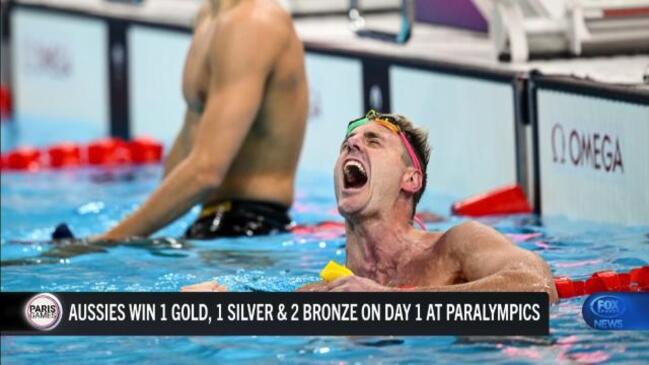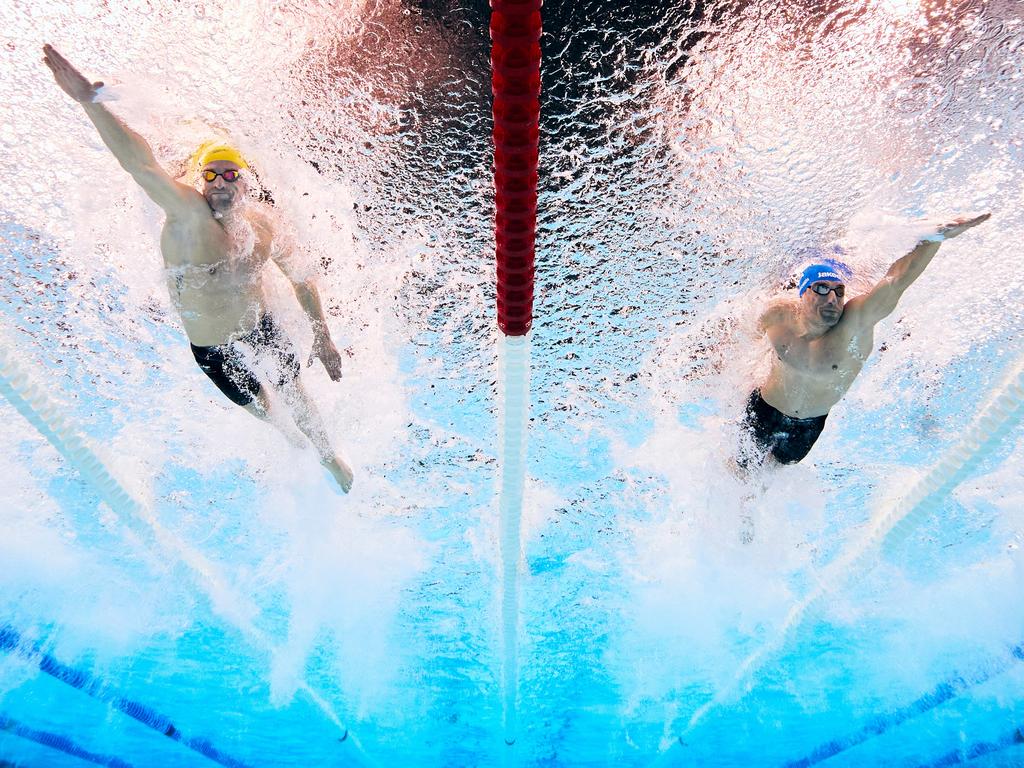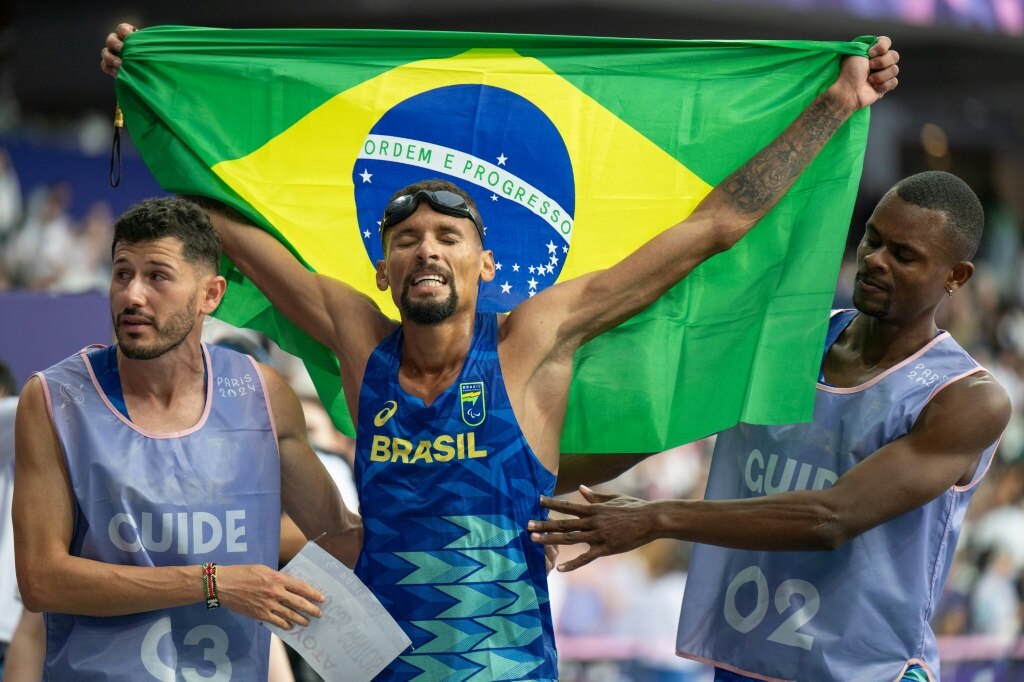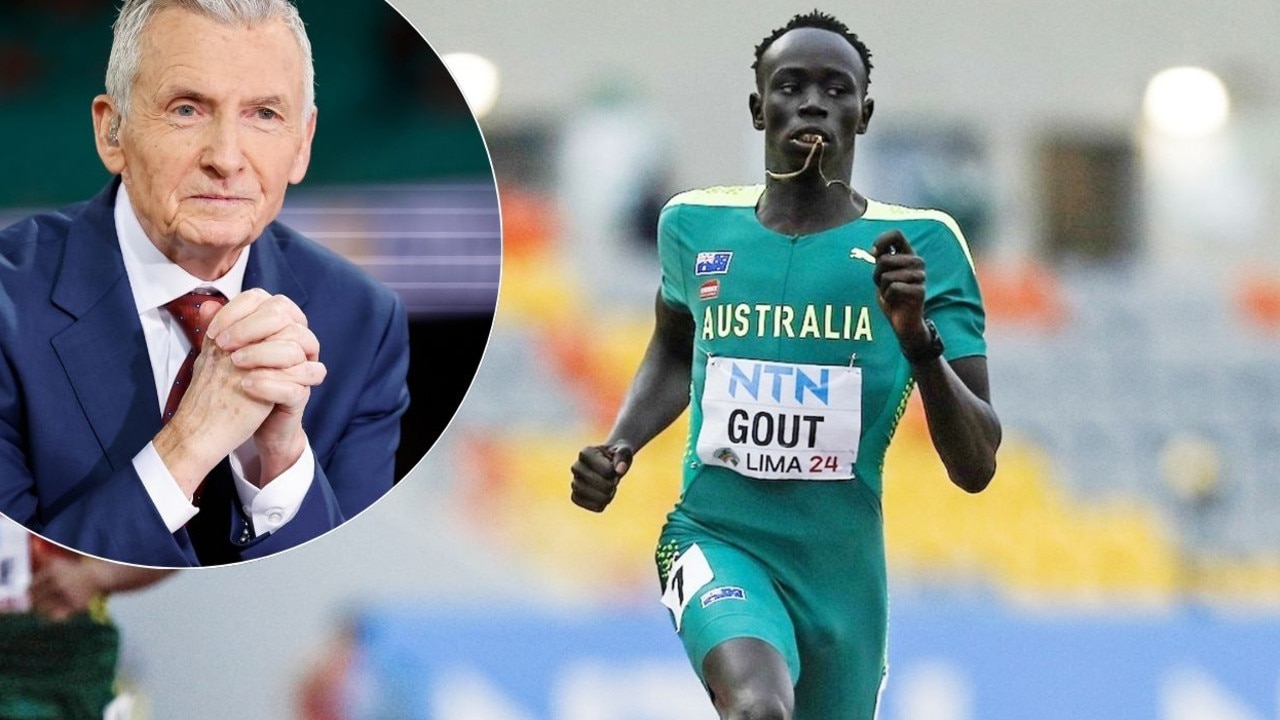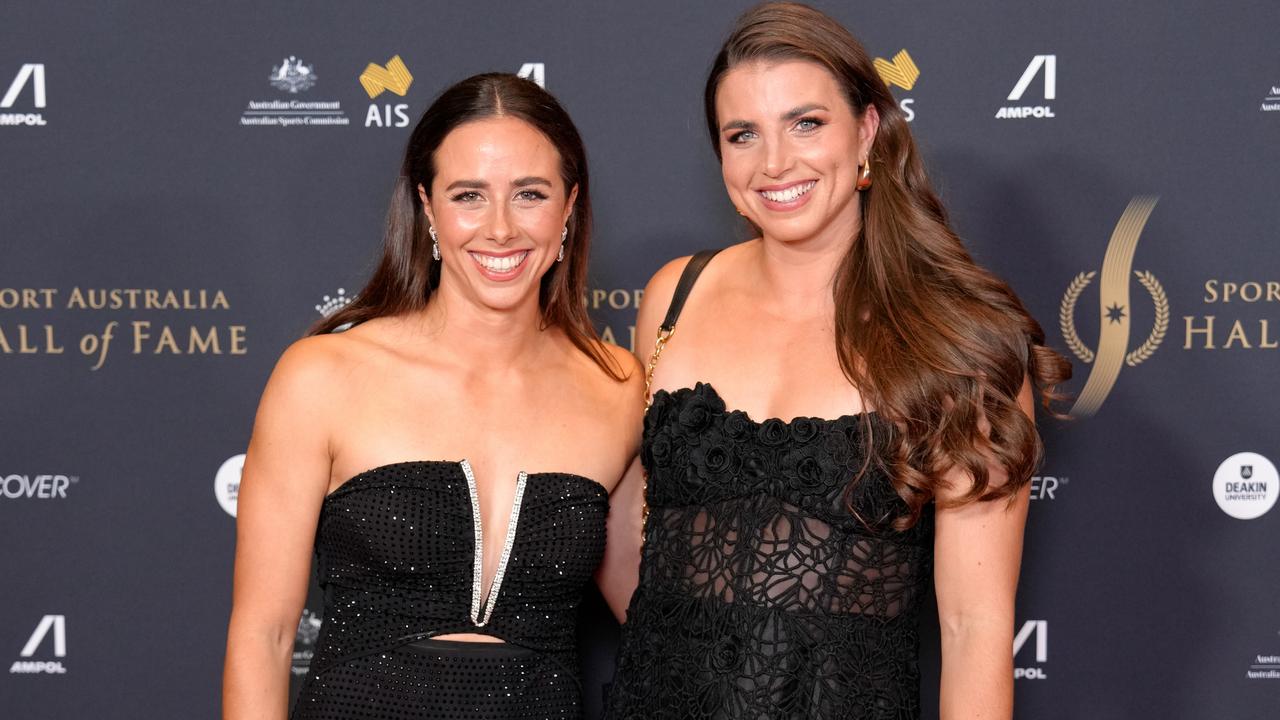Rolling with the boys in Paris
Why our female wheelchair rugby stars are hard as nails (and a touch crazy too). A semi-final berth was hinging on a result against the Danes on Saturday.

Emilie Miller is tough enough to knock the Eiffel Tower on its arse. Australia’s Paralympic wheelchair rugby campaign is being staged in the shadows of the Iron Lady at Arena Champ-de-Mars and perhaps only the most famous landmark in Paris has more steel than Miller and her mates making history in the toughest of disabled sports.
A male-dominated domain has been raided by Miller, the trailblazing Shae Graham and Ella Sabljak. A female has never won a Paralympic gold medal in wheelchair rugby but wham, bam thank you m’ams, the feistiest trio since Martha and the Vandellas are suiting up for the Steelers’ make-or-break match against Denmark on Saturday. A semi-final berth hinges on the result against the Danes at 9.30pm (AEST).
The live action on Friday night is here
Right now Miller is chatting away in a banged-up chair that looks like something out of a Mad Max movie. She’s talking about the larrikin blokes in the Australian team while seemingly impervious to the fact she’s a wonderful larrikin chick. You’ve gotta have a glint in your eye to get on a wheelchair rugby court with a disability more severe than most of the opposition fellows who aren’t afraid to ram you like it’s dodgem cars and you haven’t seen the scoundrels coming.
“You need to be a little bit mad to play wheelchair rugby, right?” Miller laughs. “That’s why we love it. It doesn’t matter whether you’re male or a female, it just matters how mad you are.
“For me as a low-functioning player and a female, I do cop a little bit more of a hit and I do get a little bit bullied sometimes. But I’m more than OK with that. We learn how to use our chairs to keep it as safe as possible and we’ve all got each other’s backs on this team.”
Three Iron Ladies. Wham, bam. Graham is the trailblazer. She became Australia’s first female international player at the Tokyo Games.
“Sometimes fear is the only thing holding you back,” she says. “I used to be a scaredy-cat. I now say to myself, ‘You’ve got to do the things that scare you because you might just find the next thing you love.’ When I decided to overcome my fear and try wheelchair rugby, I hopped in the chair, my competitive side was immediately re-awoken. I wanted to play and I want to win.”
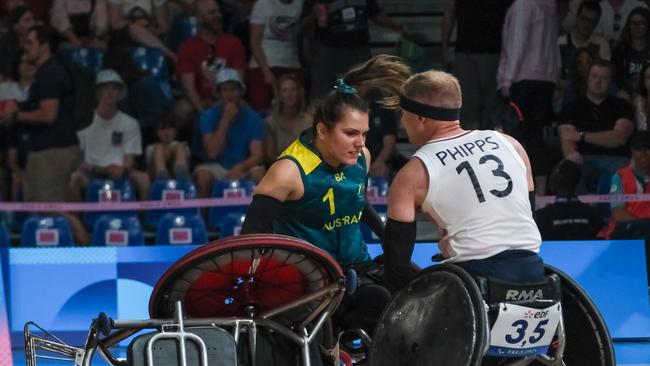
Sabljak was an Australian wheelchair basketballer who represented the Gliders at Tokyo before switching sports. She has motor and sensory neuropathy that causes loss of muscle tone in the forearms and below the knees.
“I would say I’m very crazy for doing this,” she says. “Wheelchair rugby had been asking me to come and play for a while, and then I kind of played a tournament on the Gold Coast and thought, ‘This is actually really fun. So I gave it a go. Gave it a chance and felt incredibly valued in the team. The culture of Australian wheelchair rugby made me want to know more. So I jumped on in.
“I love the power of Paralympic sport. Being able to show young girls who have a disability that you can do anything has always been at the forefront of what I do.”
A wheelchair rugby team has players graded for disability. Those with the most function are 3.5. The most severely disabled are 0.5. The 32-year-old Sabljak and Graham are 2.5s. The 29-year-old Miller Miller is 0.5. She was 12 years of age when she slipped on a diving board at Lithgow War Memorial Pool, crashing head first onto the bottom of the pool and being left quadriplegic.
A team’s four on-court players must have a combined grading of eight points or less – but there’s a 0.5-point compensation for every female player on the court. A condescending rule? “No,” Miller says.
“It accounts for the differences in strength that we have between male and female athletes. The great thing about our sport is that there’s no requirement that you have to have a female on the court. There’s no minimums and maximums, there’s no limits and restrictions. It doesn’t affect us in terms of feeling like a pity rule or anything like that. It certainly doesn’t feel like it.”
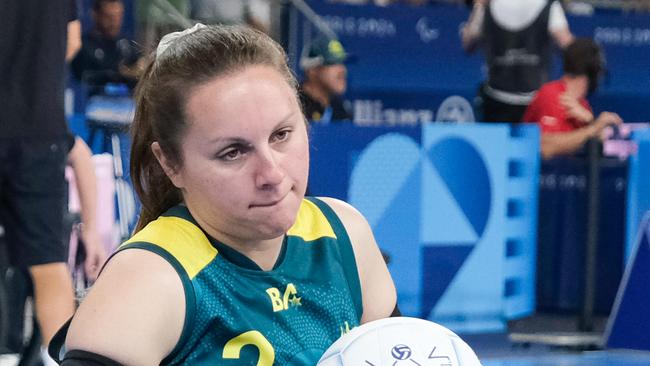
Miller, a four-time world hand cycling champion before tackling rugby, and Sabljak received court time in the opening 58-55 defeat to (all-male) Paralympic champions Great Britain, whom the Australians could face again in the gold medal match. She wouldn’t mind all-female wheelchair rugby but then again, she’s likes it exactly how it is.
“Moving forward to the LA Games, we’d love to have even more women in our Australian team,” she says. That’s certainly a goal of ours. Wouldn’t it be great if we had enough women playing in the world to get to the point of all-women competitions?
“But personally, the mixed gender side is what I really love about it. We’ve got to put up with these blokes for a little bit longer. I wouldn’t have it any other way. It’s great that we have such an inclusive sport that we have complete equality between men and women. It’s something that no other sport in the world actually has, able-bodied or para.”
What are the blokes like as teammates? “As Australians we all love a good larrikin, right? There’s some larrikins here, believe me,” she grins.
“They’re a great bunch to be around. It’s like one big family. I know that sounds like a cliche but we really do care about each other. We look after each other. It’s totally unique in the world of sport and like in any family, you have the blokes you love and the ones who annoy you and the ones you can get along with.”
Wheelchair rugby has always been mixed gender. Only now are the Iron Ladies whamming, bamming and putting their hands up for selection.
“Australia has the highest representation of females that any wheelchair rugby team has ever seen,” Miller says. “We’re very proud of that because we’re the first. It’s about growing the sport for women and diversifying our team and making our team known for being inclusive. It’s typically been a male-only sport so the fact we’re changing that perception around the world is something we’re really proud of as Australians.”
USA is fielding its first female player, Sarah Adam, as eight women rock and roll in the wheelchair rugby in Paris. “There’s a lot of challenges and barriers for women wanting to play disability sport,” Miller says.
“Gender shouldn’t be one of those. It should be just be about the disability and what you can do. Gender really shouldn’t come into it. It should only be about how good you are. And yes, how mad?”
More Coverage
